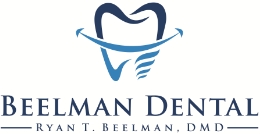Do you experience dental anxiety? If so, you're not alone. Many American adults experience a degree of dental anxiety, with 5-10% suffering from dental phobia, meaning they avoid any sort of dental care at all costs.
Whether you suffer from dental anxiety, experience sensitivity to light and sound, or have special healthcare needs that make receiving dental treatment difficult, the team at Beelman Dental is here for you. We provide the top sedation dentistry services near Bedford, TX, because we keep your health, safety, and total-body wellness in mind!
What is Sedation Dentistry?
At Beelman Dental, our sedation dentistry options are designed to safely keep patients calm throughout their procedure. Patients generally experience a feeling of relaxation in a waking state, while maintaining the ability to respond and answer questions. Your appointment will be over before you know it!
Sedation dentistry is routinely used for the extraction of wisdom teeth and other types of oral surgery. For patients who have a high tolerance to anesthesia, soreness within the jaw, or strong gag reflexes, sedation can assist both the patient and the dentist. It can also promote the efficient completion of extensive dental work, using less time and fewer appointments.
We offer the following sedation dentistry options at our Bedford dental office:
Oral Conscious Sedation
Beelman Dental provides oral conscious sedation to help anxious patients relax during treatment. Oral conscious sedation is administered as a prescription pill prior to your procedure and produces a mild to moderate sedative effect. With mild sedation, patients typically feel drowsy, and for moderate sedation, patients will often fall into a light sleep.
Dr. Beelman will always choose the most appropriate sedation medication and dose, based on your health history and treatment needs.
Laughing Gas
Also known as inhalation sedation, laughing gas is a light form of sedation that is typically offered to young patients or those who experience mild anxiety in the dental chair. Laughing gas is an odorless, colorless gas that is gently administered through a comfortable breathing mask.
Dr. Beelman will control the amount of gas to ensure maximum safety and comfort. With laughing gas sedation, patients can expect to be fully relaxed while remaining fully awake and able to follow instructions.
Questions About Sedation Dentistry?
Millions of people safely choose sedation dentistry each year. Dentists are licensed doctors trained to take the best possible care of you! Before choosing sedation, Dr. Beelman will take time to discuss the following:
- The dental procedures you're undergoing
- Your overall physical and mental health
- Any known allergies you may have
- Any medication you may be on
- Instructions for eating and drinking before the procedure
- Any specific concerns, fears, or anxieties you may have
If you choose sedation for your upcoming dental treatment, be sure to have a ride home arranged ahead of time. Dress comfortably, avoiding tight-fitting clothes and contact lenses.
Experience Comfortable Care at Beelman Dental
Have questions about how sedation dentistry can improve your time in the dentist's chair? If you're ready to learn more about sedation dentistry, give Beelman Dental a call today!

